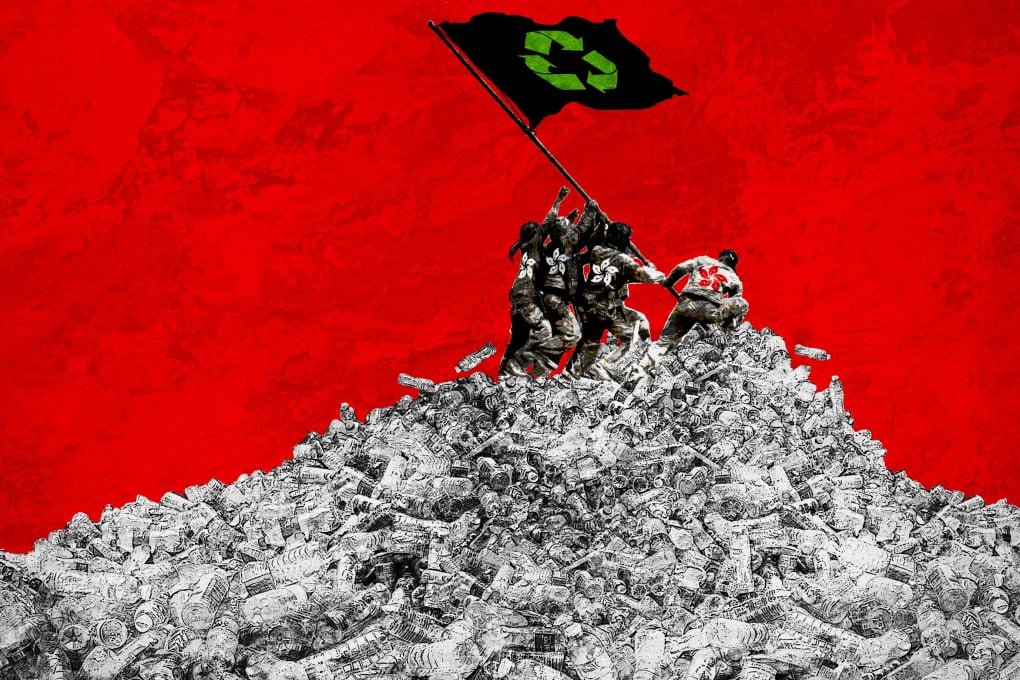How Hong Kong can rescue the struggling recycling industry and win its war on plastic waste
- PET is the world’s most recycled plastic, with US and European recycling rates of 31 per cent and 52 per cent dwarfing Hong Kong‘s12.3 per cent for all kinds of plastics
- A Hong Kong circular supply chain facility clocks only 30 per cent capacity utilisation due to weak policy support, poor infrastructure and consumer distrust, co-owner says

At the December 2022 opening ceremony of the state-of-the art, 6,500-square-metre plant that cost US$11.6 million to build, Patrick Healy, chairman of Swire Coca-Cola said setting up NLP was a “huge step” towards the Hong Kong-based drink maker’s ambition of “closing the loop”.
He was referring to the establishment of an unprecedented circular supply chain where all of Hong Kong’s discarded polyethylene terephthalate (PET) bottles, used for packaging locally made drinks, are collected and processed into recycled PET (rPET) pellets for producing new containers.
NLP is 57 per cent-owned by Swire Coca-Cola, 10 per cent by German waste management recycling firm Alba Group, and 33 per cent by Hong Kong’s Baguio Waste Management and Recycling.
But two years after operations began, NLP’s plant is running at only around 30 per cent of its PET bottles processing capacity, said Suzanne Cheung Kit-yi, head of public affairs, communications and sustainability at Swire Coca-Cola HK.
She attributed the low utilisation to insufficient policy support and incentives, inadequate collection infrastructure and consumers’ lack of trust that bottles placed in recycling bins will indeed be recycled or just end up as pollutants in landfills.
“Convenience of recycling and trust hold the key, both of which are lacking in Hong Kong,” she told the Post. “The government can play a strong role in improving convenience, incentivising recycling-friendly packaging design, and enhancing trust through education and recycling check-and-trace mechanisms.”